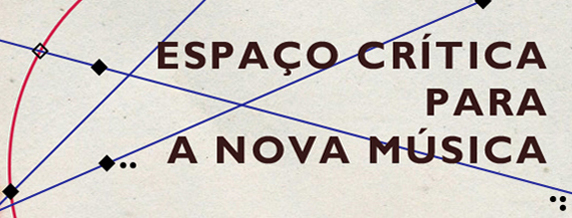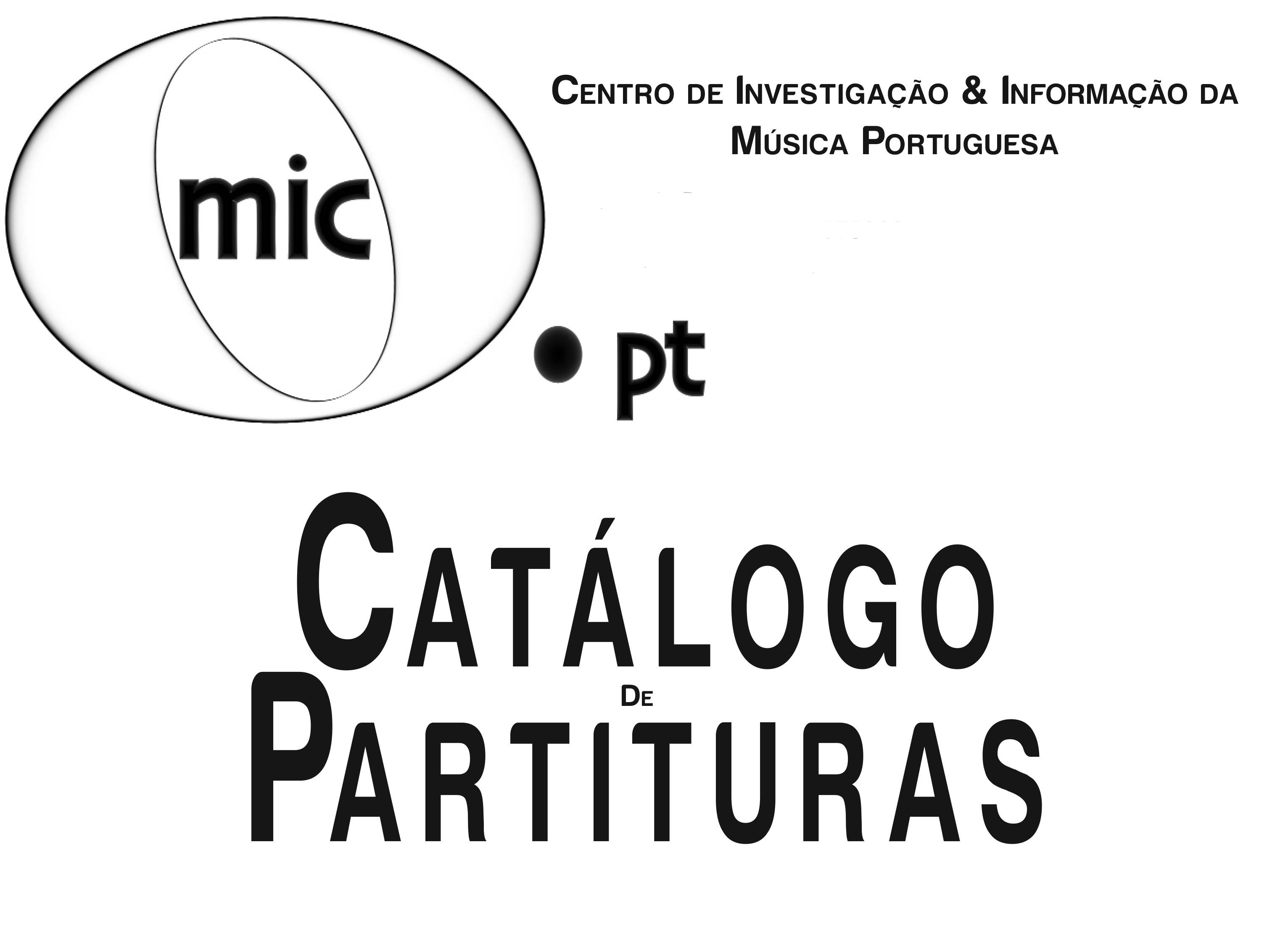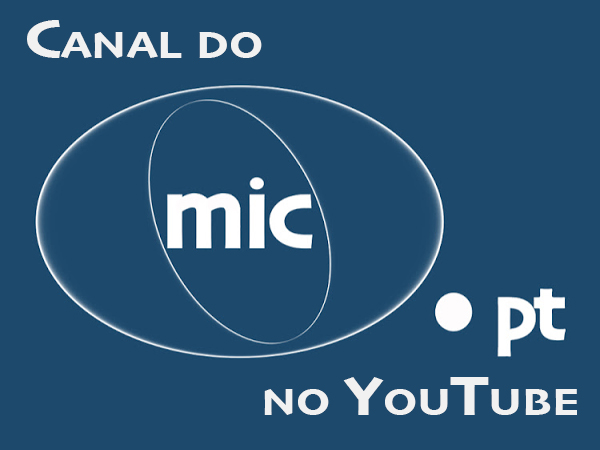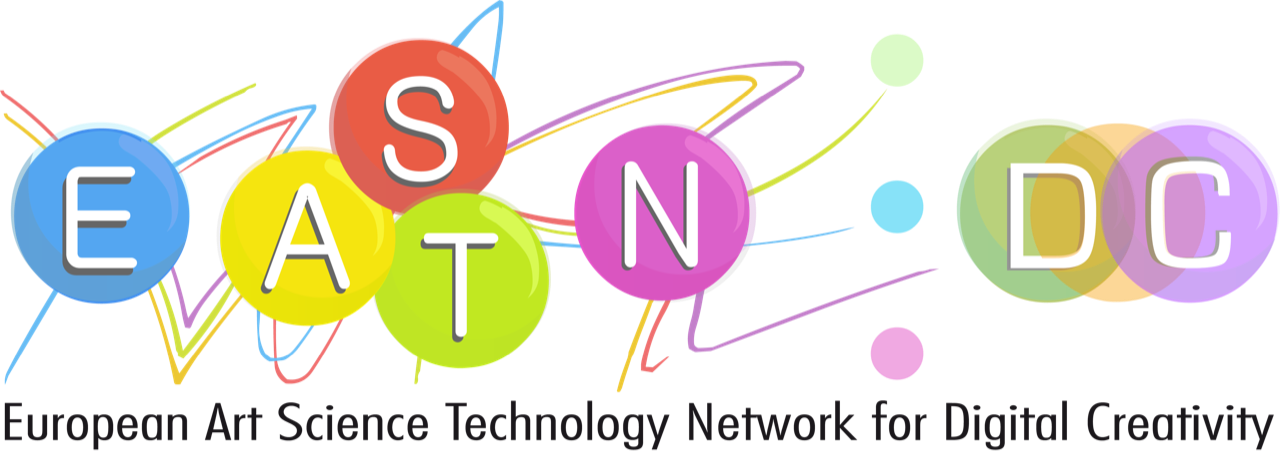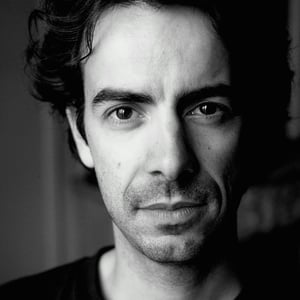
Questionnaire/ Interview
PART I . roots and education
• How did your interest for music started and what are your musical roots?
I’ve started studying music around the age of 3 years old, at an informal school that would be called Collegium Musicum – Seia’s Conservatory of Music, founded by the ethnomusicologist António Tilly.
Only much later did I realize that the teaching methods and typologies that we were given were fundamentally different from other conservatories. The ethnomusicological approach based on ethnographic assumptions and anthropological studies, but also the access to the main musicological studies in Portugal and abroad were part of our everyday life in our musical learning. From very early on, these subjects were introduced in adapted forms, but always referring to bibliographical sources and fitting the studies we were presented. The study of music was based on the systematization of musical sciences, proposed by Guido Adler, and it was questioned, instead of "exposed". The classes were rarely expository and often began with questions.
In addition, the school was equipped with Macintosh computers, that included software such as Max and Studio Vision (both from Opcode Systems), FileMaker, among others. Despite having a computer at home since I was born, the computers we were shown there were very different. There were laptops, midi interfaces, computers with color screen, operating systems and ways of working that I didn’t knew.
António Tilly often explained the musical production processes in different contexts and periods. We listened to musical examples, analyzed excerpts, and discussed musical practices. That’s how I started to understand the music of Frank Zappa, Karlheinz Stockhausen, Miles Davis, Beethoven, The Beatles, Carlos Seixas, among others. Generally, I had already listened to these musicians at home since about 7 years old (when I started to have more interest in listening to music), thanks to the records of my family and other recordings found at the Conservatory that were granted by others. In particular, the father of a friend – the engineer Mr. Gonçalves - and the father of another friend - the architect Mr. Figueiredo - showed me both literature, visual arts and music in general.
At the Conservatory, in general, we listened to many different musical practices, but the in-depth study of it was seldom imposed. Usually, we were presented recordings, musical scores, literature and each student would come back the following week to present something of his interest related to what had been discussed. I thought all schools were like that. It was only in college that I realized that this was not a common reality.
Since my mother was from Lisbon and kept an apartment there during my childhood and youth, we attended concerts at the Gulbenkian and visited the exhibitions that were taking place. That was something we did around 1 to 4 times a month, and this is how we often spent the holidays. Since my 12/13 years old we also started to travel abroad more often, usually to European capitals to visit museums and attend concerts.
• What led you to composition?
I started writing music at the age of 12. And I didn’t compose tonal music, except as an academic exercise. Back then, I used computers to create electroacoustic pieces and program MIDI sequencers, and I was inspired by what I listened and the potential I saw in the equipment that was available - from the extraordinary computers at the Conservatory to the personal equipment that I acquired or that was offered to me, which was almost always very rudimentary. In this period, that lasted until about the age of 14, I composed without "leash", just for fun. I wrote for the technology available and I also wrote a small number of instrumental pieces for a group of contemporary music that I founded at the Conservatory. Among the founding members, is the ethnomusicologist Ricardo Andrade.
At this time, in general, I composed only for myself. Only on rare occasions I organized public presentations and showed the pieces to teachers who were curious about what I was doing. One of them was my guitar teacher, Paula Sobral, the wife of the composer José Carlos Sousa, and other Conservatory teachers who showed my scores to their teachers at the University of Aveiro, in particular, the composer Evgueni Zoudilkine.
From the age of 15 I began to have direct contact with other composers, firstly at the Jornadas Nova Música in Aveiro, where I met Emmanuel Nunes, Miguel Azguime, Beat Furrer, João Pedro Oliveira, Philippe Hurel, Isabel Soveral and many colleagues with whom I still maintain an excellent relationship, and some of them became close friends. I kept my interest during this period, in which I also attended other courses - in particular with Cândido Lima. And after coming to the University of Aveiro I also kept watching all the concerts and workshops that I could, including the Música Viva Festival, the Grupo de Música Contemporânea de Lisboa’s concerts, seminars with Emmanuel Nunes, and all events which were presenting contemporary music.
It was only after starting the studies in Composition and Electronic Music at the University of Aveiro, at age 17, that my pieces began to be performed and I started a different stage in my learning process and ways of composing.
PARTE II . Influences & Aesthetics
• What kind of past and present references does your musical practice incorporate?
Even though I have never composed tonal music, except as an exercise, classical music in general has always aroused a particular interest in me. Still, fortunately I have listened to many other musical practices.
I still remember one of the most fascinating listening events for me. I should have been around 10 years old when I heard a recording of a Stockhausen’s piece which I couldn’t memorize the same way I memorized other pieces. I also used to listen to records of "progressive rock", but not only that. I listened to Frank Zappa, whose albums I knew very well, King Crimson, Van der Graaf Generator, Gentle Giant, Genesis, Camel, Magma, Area, Mahavishnu Orchestra, Amon Düül, Ash Ra Tempel, Banda do Casaco ... Jazz records, among others, of Ornette Coleman, which was more difficult to memorize than other recordings, such as the symphonies of Brahms, Mozart, Haydn, Beethoven, the concert for harpsichord by Carlos Seixas and many other vinyls, CDs and cassettes that I copied from my sister, parent’s friends, Conservatory, etc.
This idea of being able to memorize something was for me one of the first stages to think about the musical practices and how I realized that the way I perceived them was related to their "matter" (a concept that I use nowadays but not at that time). I believe this probably happened for two reasons. The first, because I had a musical education with an ethnomusicological perspective, in which we didn’t learned the musical practices in an hierarchical way - i.e. António Tilly did not come to tell us that this or that composer was a genius. On the contrary, the classes were dedicated to deconstruct concepts such as "genius," "good," "bad," "great composer", and to understand the musical practices in context. The second reason was because I wasn’t born in a family of musicians or artists, but rather I grew up in a family of music lovers that did not imposed me any particular aesthetic value, allowing me to find my own values.
Because I liked to experiment and create my own "matter" I can’t say exactly what influenced me directly. However, because of the way I grew up listening to music, I know that certain composers and currents of contemporary music had more importance for me than others. I’m also aware that my fascination with classical music in general - including non-Western music (which I know on a much lesser depth than the so called Western classical music) -, had a greater impact on me than other musical practices that I also knew and was interested to know. But those didn’t had the same enchantment on me. And that's why I have never studied them the same way.
At the academic level, up until my twenties, I met many composers in Portugal and abroad whose music I listened to, and with whom I had classes with, attended courses and I hang out with in different phases of greater or lesser duration, with more or less depth.
Georg Friedrich Haas, John Chowning, Brian Ferneyhough, Helmut Lachenmann, Dan Truman, François Bayle, Morton Subotnick, Philippe Hurel, Marek Choloniewski, Miguel Azguime, Annette Vande Gorne, Enno Poppe, Pedro Figueiredo, Barry Truax, Agostino Di Scipio, Max Mathews Pedro Amaral, Toshio Hosokawa, Simon Emmerson, Eduardo Reck Miranda, James Dashow, António Sousa Dias, João Rafael, Cândido Lima, Jean-Claude Risset, Salvatore Sciarrino, Godfried-Willem Raes and many others, including colleagues, with similar and distant age groups, were also important to discuss the contemporaneity of the arts, and beyond. Still, it's hard to say specifically what is the influence of this or that composer, friend, etc.
At the University of Aveiro, I studied two years with Isabel Soveral, and two more years with João Pedro Oliveira, who were important to me.
But what most impressed me was the study of Karlheinz Stockhausen's music, which I study more in depth with the composer in his summer courses in Kürten that I attended regularly since 2003, and continued to attend to even after his death (and also organized a series of conferences on Stockhausen and pedagogy at the 2009 courses). More important even, was the work with Emmanuel Nunes, whom I’ve met in 1999 at Jornadas Nova Música, but with whom I had a closer contact after 2002/2003. First I worked with him in seminars at the Gulbenkian Foundation, Casa da Música, but I also worked with him in private, in Lisbon, Porto and Paris, both having him as a professor of composition and also as co-supervisor of my doctoral thesis. He was a mentor to me at various levels and someone that I accompanied until the end of his life, which also left an imprint on me.
• Are there extramusical sources that influence your work in a meaningful way?
Despite having composed more than once based on extramusical phenomena, like biological and aerodynamic models, among others, I don’t see them solely as a source of inspiration. It has more to do with how I know and experience a certain phenomenon. I also have pieces inspired by literature and other arts, which, likewise, involve the way I live or have lived a particular work or artistic experience.
The way such elements are incorporated into the work does not go through a "transcription", algorithm, or "passing" process from let’s say an unmusical element to a musical element. In general, however, I tend to create analogies between the phenomena that I find in the "real world" - I mean in the physical world, experienced either by direct experimentation, or by my understanding of the imagination and scientific methods about the way a certain physical element (that is not tangible) occurs and how it is described, up to the extent that is not directly observable in all its magnitude - and musical phenomena. These analogies always presuppose musical relationships with a noticeable acoustic meaning in different degrees, sometimes showing more or less clearly the musical process that is on going.
Nevertheless, as I often say in lectures, articles and other moments of sharing about those elements: I could explain the compositional processes for any of these pieces just by talking about music; the reason why I talk about biological models or anything else is purely ethical, in the sense that I would not feel honest if I didn’t revealed the starting point.
PARTE III . language and musical practice
• Regarding your creative practice, you develop music from an idea-embryo or after establishing a global structure?
For me, there must always be an idea, and that does not mean that this idea cannot arise from something experimented, be it more or less methodically done. There is, however, a principle that interests me: the reproducibility of what I did. And for that, one needs method. That is, even when I start with something that I did without a true awareness, that initial moment must become conscious in order to gain control of what I'm creating. This assumption is based on two premises: I need to know what I am doing in order to develop the generated "matter", and, on the other hand, I need to be able to explain what I did, with a pedagogical perspective. This is true because I’ve been teaching composition for many years now, both in Specialised Artistic Education and in higher education, and I don’t think I could be honest to accomplish such task without at least being able to explain it. I do not believe that this approach limits the "creative freedom" - and such expression should not be interpreted linearly, or else we would fall in a discursive simplicity that I am not interested in. This freedom to create and to know how to create shows different attitudes that I do not regard as incompatible, but I do regard them as different. For me, these attitudes are inseparable, and whoever composes must necessarily take both.
There are a couple dimensions in the compositional process which perception is deeply influenced by the way the so-called "macro" and "micro" structure are designed and interconnected. This type of approach is not new, but the concepts may have changed. It can be seen, for example, when analysing a symphony of Haydn or a Beethoven’s sonata.
Regarding the idea of starting from the "macro" or the "micro", I cannot answer it in a linear way because I believe that these elements are inextricably linked. But I know that, depending on the piece; there may be different developments. In some cases there is a predetermined idea of the overall duration, the duration of the each part, and the internal development of each moment. In other pieces, there is a less accurate notion of the overall duration, and the development process undergoes an exploration of the "matter" previously created. That does not mean that there is a totalizing scheme, planned out in advance, and that everything is a "transcription" or a "translation" into the score or electronic means, but often there is indeed an important creative source that gives me a direction.
Among the parameters that I’m interested in developing, time is often the primary connection point of musical relationships. However, in my way of working, often the musical parameters are associated. That is, it is common for a change on the time domain to have an associated change in pitch, timbre, dynamics and space domains.
• What is your relationship with new technologies, and if so, how do they influence your music?
I would say that the sound (and music) technologies always play a key role in how any composer works, as there is a minimum of interaction with the world, which is healthy, and connects us with the others. Still, I know that many don’t choose, or can’t choose, to be in permanent contact with a field that is constantly changing. I believe that this isolation extends a gap between what is the current changes, inherent to the musical practices in general (whether in classical music or other), and a self isolating attitude that does not sit well with a conscious desire to create something new.
This isolation is not only the alienation of the creator in regard to technology but also the lack of openness to knowledge, and learning in general - basically the lack of study. For me, this learning process must necessarily be continuous throughout life in some way. Although I think it’s strange for a composer to not have the slightest interest in what is happening in his field - which in itself tends to be very limited regarding the participants, organizations and production, compared to other musical practices -, I do recognize that it is his choice and it may have a specific function. For example, he may decide that he’s not interested in learning more than what he knows and prefer to use his time to work on his music.
But there is a serious concern in this field, which is the fact that musicologists, curators, and musicians in general do not have the slightest notion about what is happening in the developments of music and production in the twenty-first century, whether in technology or any other. With rare exceptions, I empirically observe this fact every day in Portugal and abroad. I appreciate and value the study with an historical approach, but I think that our time needs more attention. I feel that there is a lack of balance between what it is known about the present and what we should know, and this is not solely in the musicological field. Simultaneously, I also observe increasingly younger music students, musicologists, composers, including from other fields, with much interest in modern-day musical developments. In the twenty-first century, the lack of access to information is not the baseline problem. The predisposition for learning in depth and the will for a constant update of each one’s hard core is what it seems to me to be the problem. The proliferation of superficial studies on all kinds of issues does not seem to support a knowledge base that allows deepening.
In my case, there isn’t a constant search for all that is happening, either in classical music or other musical practices. However, my professional life was conceived so as to daily interact with other creators, scholars and performers, which facilitates monitoring the phenomena of change, and allows me to feel more in touch with the world.
Regarding the sound and music technologies in general, there are a couple of elements that have fascinated me since I started composing. As I think about it, I remember the article by Max Mathews from 1963, often cited by John Chowning, where he stated that there is no theoretical limits for the computer's performance as a source of musical sounds. Obviously, when I started composing, I knew nothing about Max Mathews, but I was interested in the idea of being able to expand my creativity. What fascinates me isn’t knowing that I can do anything, but rather the idea that I still don’t know what I might be able to do. My work with electronic media favoured this idea. Occasionally, I have had contact with relatively new technologies that allowed me to experience music in ways that I didn’t think possible. I speak specifically of my work with the ultra directional loudspeaker, also known as "parametric loudspeaker array" (PLA), among other terminologies. Since I started working with this technology in 2010, when I used it in a piece commissioned by the Contemporary Music Group of Lisbon, my way of conceiving the space has changed. I hope to be able to "change me" and "renew me" permanently.
PARTE IV . music in Portugal
• What, in your opinion, distinguishes the Portuguese music on the international scene?
I don’t know what is "Portuguese music", but I have an idea of what the music made in Portugal is and what is the music of Portuguese composers like.
To assume a priori that there is a “Portuguese music” without defining what you mean by that and to simultaneously conduct a question that involves the term is nonsense.
Speaking only about classical music, with the appropriate exceptions historically recognized by experts, I don’t find any significant distinguishing factor to point out. At most, we could distinguish the field, analyse the repertoire and practice in general. Otherwise, we could study it. Yet, I empirically consider that we would find more common elements that distinctive, compared to other geographic locations.
• How do you define the role of a composer today?
I can’t understand to which context that question refers to. In the social context, in the context of musicological research, within the Specialised artistic education, on the production centres (foundations, associations, theatres, educational services of museums, etc.)?
Of course, when I ask this question I’m already answering to another possible interpretation of this question. One might ask: What does a composer do, to compose nowadays?
Sure enough, the response will vary for each person. But I would say that, excluding what each one does or wants to do depending on his economic environment and financial expectations, I consider it normal that whoever composes should distribute his time in diversified functions - involving lifelong learning (research), publishing scores, computer programming (particularly for electroacoustic means), management, networking, among other activities that enrich the musical lifestyle.
PARTE V . present and future
• What are your current and future projects?
Currently I’m working on a piece that is divided into seven parts, which in its final version will be for two ensembles that will play simultaneously, using different tempos for each one. The final piece will be called "Sangue Inverso, Inverso Sangue". The completed parts are the first, second, third and sixth parts of Sangue Inverso (called magnetite, ametista, obsidiana and olho de tigre, respectively), and these were made so they could be played individually. The composition of these pieces was commissioned by Grupo Síntese and Festival Primavera. I am also working on a piece for choir Soli Tutti, based at the University of Paris VIII.
• How do you see the future of art music?
I don’t. Lately, I focus on the present. It’s less depressing.
